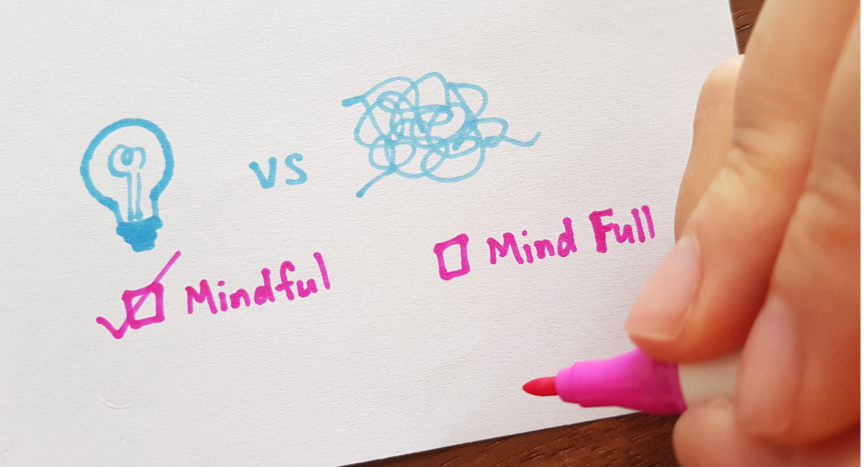Workplace Mindfulness
‘Mindfulness in business? Seriously?’ This tends to be the reaction of people towards mindfulness-based workplace interventions. This is quite understandable. But with over twenty five years working in corporate, an expert advisor for developing KWM-accredited wellbeing strategies and a graduate of the ‘Oxford Foundation Mindfulness in the Workplace’ programme, I assure you that mindfulness plays a vital role in the workplace when implemented in a sustainable and supportive way.
It is only since the 1970s that mindfulness has progressed from being an eastern-steeped contemplative practice to a rigorously and scientifically tested tool that is found to be effective in building mental stability, strengthening self-awareness and building emotional regulation. Mindfulness is a key component for building emotional intelligence capital in the workplace. In the last decade, there is an increasing focus on research about the effectiveness of mindfulness in the workplace. HSBC is a forerunner in demonstrating the positive impact of building a sustainable and employee-driven mindfulness programme. In addition to witnessing improved employee wellbeing HSBC attributed a 50% reduction in error rates to the mindfulness training.
Read more: Mindfulness at Work? Seriously
What is Workplace Mindfulness?
Mindfulness is a self-development tool. They say mindfulness is caught and not taught; but to catch it, one needs to have discipline in terms of practice. Mindfulness interventions in the workplace go beyond the traditional techniques of sitting meditations or chanting. Mindfulness is a way of being that is embodied in how we talk, listen, walk and be.
We are all programmed to have judgements. Diversity and Inclusion programmes are part of all organisations’ policy frameworks which educate employees on equality in the workplace. Mindfulness supports employees to move from the learning mode to being. Mindfulness-based workplace interventions support employees in challenging unconscious biases by widening the lens from a personal to a group perspective and by encouraging challenging questions during reflective practices.
The intention of mindfulness at work interventions is to foster greater awareness of the dynamics at work in the workplace, within groups and teams. Reitz & Chaskalson (2020) share the following insight about mindfulness: ‘…members are collectively aware of the team’s interactions, objections, tasks, roles, and dynamics. That awareness emerges because of the team regularly paying attention to these factors, openly and non-judgementally.’
In essence, mindfulness is a way of being, and when weaved into an organisation’s culture it promotes authentic exchanges, builds connectivity, and strengthens psychological safety.
Engaging in once off mindfulness training is beneficial in terms of learning about mindfulness, however, it has limited impact. For workplace mindfulness to have impact, commitment is required. Gaining knowledge about what it is, developing an understanding of appropriate practices for the workplace and building confidence to hold mindful spaces, is essential, to build momentum.
From an organisational perspective there is a need to integrate mindful habits into standard operating processes. Practices such as promoting mindful pauses during the workday, team reflections and regular live meditations are key to building momentum.
.
Key Benefits of MBI
Deepening connectively, strengthening mental resilience, and embedding safety are competencies mindfulness builds. Such skills evolve through learning but equally important is experiential practice. Amy Edmondson who coined the term ‘psychological safety’ said it takes years to build, and moments to tear down, so too when underpinning mindfulness to your organisational wellbeing strategy. It takes time, consistency, and commitment to embed mindful team habits. Measuring its impact and championing mindfulness across the organisation leads embeds the consistency of mindful habits across the organisation.
Summary
Mindfulness is not a quick fix. It has many benefits but if just landed on employees without considering its cultural fit and employees’ interest and senior management support its impact will be limited. If interested in learning more about mindfulness in the workplace place, book our upcoming online webinar The Mindful Connection for Managers – Tuesday January 16th 2024 10am to 12:45pm







